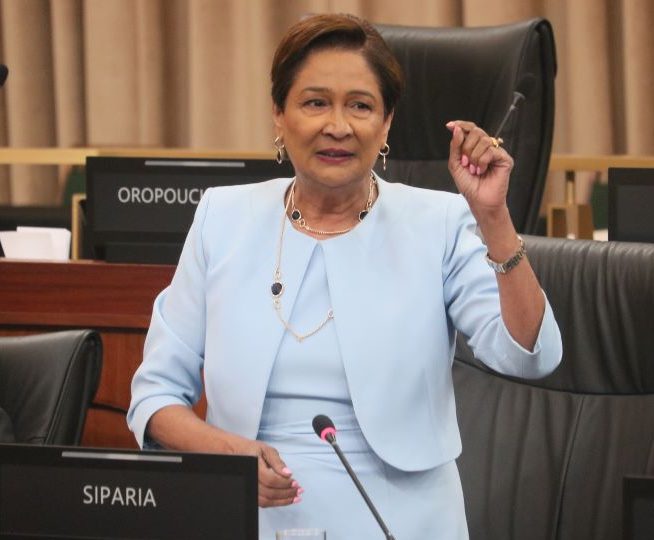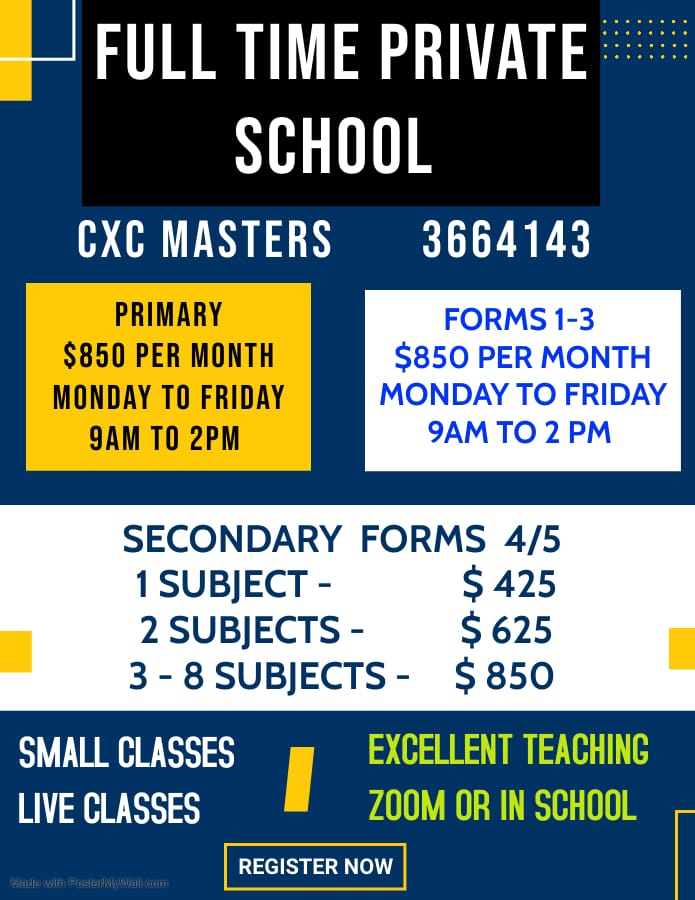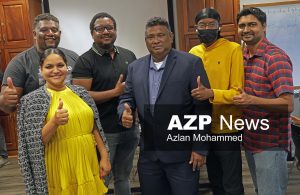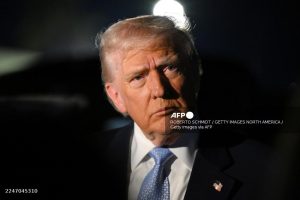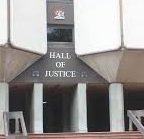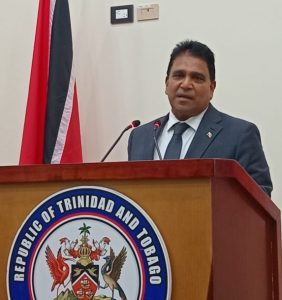By Prior Beharry
MUSIC does not influence young people to become criminals.
There is no empirical evidence to prove this, says Opposition Leader Kamla Persad-Bissessar speaking in a private motion brought by Tabaquite MP Anita Haynes-Alleyne that condemned the Government for its mismanagement for the education system in the Lower House on Friday.
She said that at the recent CARICOM conference in Guyana, leaders spoke about the impact of music. And she made reference to statements made by Minister of Education Dr Nyan Gadsby-Dolly last month that youth were absorbed by the lyrics in Trinibad music and those who had access to illegal guns lived it.
The minister said the youth absorb the visuals and words from the songs, and those who have access to illegal guns live it. “That music is like an anthem and like a mantra,” she said. Dr Gadsby-Dolly said it was hard for some young people to transcend the violence and negativity.
Trinibad music refers to a subgenre of Trinidadian music that emerged as a fusion of dancehall and Trinidad and Tobago’s local music styles, particularly Soca. It gained popularity in the mid-2010s, with artists incorporating elements of dancehall, reggae, and Soca while infusing a distinct Trinidadian flavour. The lyrics usually allude to guns and gang violence.
Persad-Bissessar said, “Music is a reflection of the culture of a time.”
She made reference to the Peace Concert in Jamaica in 1978 which she attended, and when Reggae singer Bob Marley tried to bring together the two major political parties.
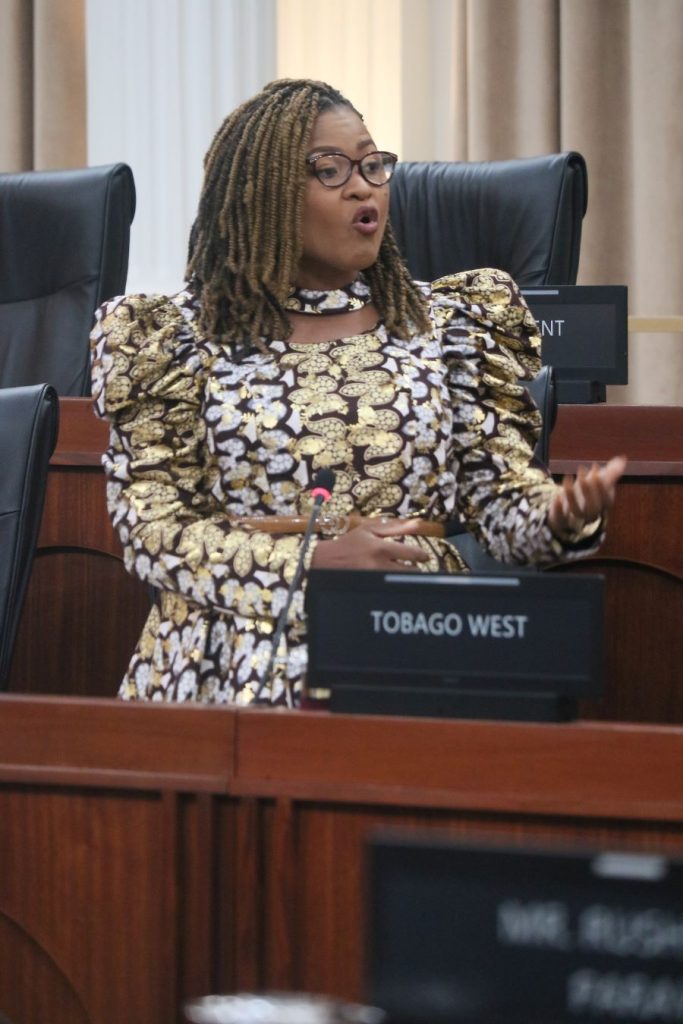
“That man was a tremendous singer, he sang three to four hours non-stop. He did that Peace Concert in the height of the crime that was taking place there.
“And his music was revolutionary music. There were those in their homes (saying) don’t listen to that kind of music, this Reagge thing and Bob Marley talking about struggle, that was the music of the time.
“If there is Trinibad music it is a reflection of what is happening in the reality of the situation now in Trinidad and Tobago.
“If the minister (of education) tries to tell people stop listening to Trinibad music well that ministry should try to bring some proposal to deal with the violence in schools.
“How are you dealing with the violence in schools… How many to those thousands in those schools listen to Trinibad music?”
She said that Gadsby-Dolly must have listened to Trinibad music or else she would not have commented on it.
Persad-Bissessar said as a child her parents didn’t want her to listen to Marley.
She said that people also didn’t want to listen to Calypso and steelband music since they were associated with badjohns and bad people.
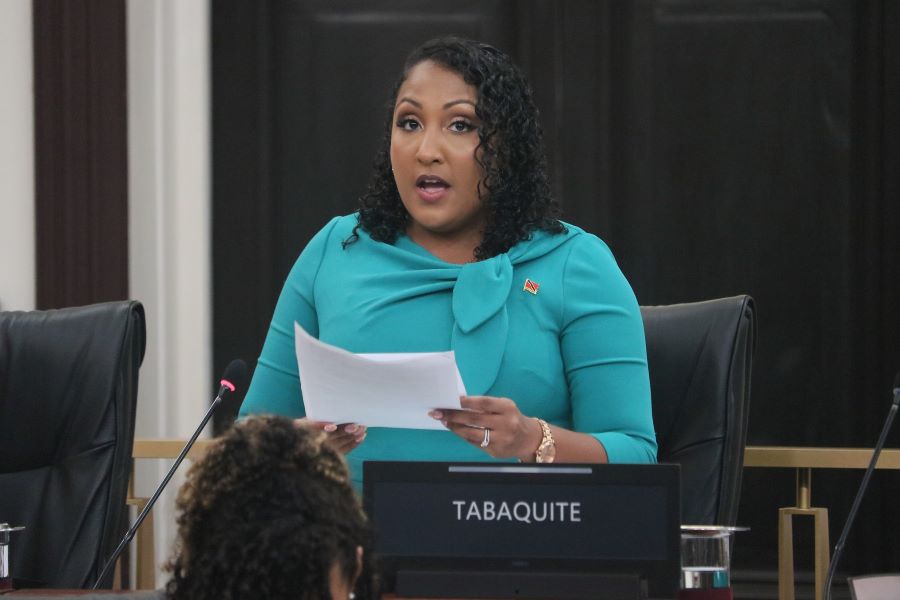
“So let not your failure to deal with the crime situation push you into directions that you don’t really and shouldn’t really go. Don’t go there.”
Speaking at the 46th Regular Meeting of the Conference of CARICOM Heads of Government in Guyana, President Irfaan Ali said, “We do not need lyrics that promote violence in this region. We have the ability to promote good lyrics and lyrics that will move people in the positive direction and move people to think act and behave positively.
“As leaders of this region, we have to take this situation very seriously and ensure the lyrics of the region is the lyrics of Bob Marley, the lyrics of positivity and the lyrics of positive living and positive change. We must take this responsibility on today.”
Guyana was one of three Caribbean countries to bar Trinibad artiste Kman 6ixx (Kashif Sankar) from entering its country to perform. He was prohibited from entering the South American nation based on information that a hit might be carried out on him while he was there.
An attempt was made on tSankar’s life was made on his return to Trinidad in December. That attack resulted in the deaths of four people, including a woman peering through her window to see what was taking place on a highway, in a brazen daylight attack.
Sankar was also banned from performing in St Kitts and Nevis and Grenada earlier this year.
President Ali said the topic of banning artistes was discussed with Prime Minister Dr Keith Rowley.
“For some, this may seem a soft issue, but this is a fundamental issue. Only recently Prime Minister Rowley and I are having a conversation when many young people young, brilliant people question the decision of not having a certain artiste perform in the country. Because authorities (have stated the artiste) is on an Interpol red list.”
On his return to Trinidad after the CARICOm meeting, Dr Rowley said that music prompting violence should be restricted but stopped short of calling for a ban.
He said, “I think the general consensus is that art, including music, has an effect on the human form and the human condition. And if the expression of that art, that music, is one that promotes and glorifies negatives in the form of violence, then clearly, it ought to be condemned.”
And Grenada Prime Minister Dickon Mitchell told reporters in Guyana last week Caribbean leaders were not prepared to “shy away from” dealing with the music now emanating in the region.
He said lyrics from the Caribbean were always inspiring, uplifting, funny and entertaining.
Mitchell said, “But they never promoted violence. They never encouraged violence, they never glorified violence, they never denigrated women and we have to accept …that there has emerged a trend in our entertainment sector…that glorifies violence, glorifies criminality”.
He said that while regional leaders were not inclined to prevent artistic rights as “all societies have to determine what are our values.

Support independent journalism. AZP News is an independent news organisation that is not affiliated with any big business and depends solely on advertising to pay our bills. Therefore, we are asking for the generosity of our readers to help us with small donations of any amount, but we will be happy with US$1, US$5 or US$10. Click Here to Donate
![]()


